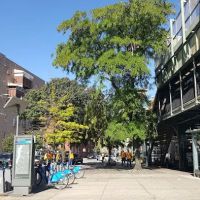Lindsay Triangle Introduce
In the dynamic landscape of New York City, where every square foot holds immense value, even the smallest green spaces play a significant role in the daily lives of its residents. The Lindsay Triangle, located in Brooklyn, is a perfect example of such a vital urban amenity. While it may not boast sprawling lawns or elaborate recreational facilities, this compact park offers a unique blend of historical significance, convenient accessibility, and a much-needed moment of respite amidst the bustling energy of the city. For New Yorkers navigating the vibrant streets of Williamsburg and Bushwick, Lindsay Triangle serves as a practical and often appreciated point of connection.
This article aims to provide a clear, engaging, and informative overview of the Lindsay Triangle, emphasizing its suitability for local users. We'll delve into its precise location and how easily it can be accessed, particularly for those relying on public transportation and alternative mobility options. We'll also highlight its key features and services, demonstrating why even a "small paved plaza" can be a valuable asset in an urban environment. As one local review notes, it's "not much to see but you can pick up a Citi-Bike or hop on over to the J & M Train Station if you'd like," perfectly encapsulating its utilitarian charm.
Understanding the purpose and offerings of places like Lindsay Triangle is crucial for making the most of New York City's urban fabric. It’s a testament to the city’s ability to create functional and accessible public spaces, even in high-density areas. Whether you're a long-time resident or new to the area, learning about this unassuming yet effective park can enhance your daily commutes and offer a convenient spot for a quick break. We invite you to explore the details of what makes Lindsay Triangle a truly local New York City park.
The Lindsay Triangle is conveniently located at Lorimer St &, Throop Ave, Brooklyn, NY 11206, USA. This strategic address places it in the heart of Brooklyn, serving as a key point within the vibrant intersection of several neighborhoods, including Williamsburg and Bushwick. Its triangular shape is characteristic of many small public spaces in New York City, often arising from the convergence of streets.
One of the most significant aspects of Lindsay Triangle's location is its exceptional accessibility, particularly for those relying on public transportation. As noted in a customer review, it's a prime spot to "hop on over to the J & M Train Station." The Marcy Avenue station, serving the J, M, and Z subway lines, is directly adjacent or just a very short walk from the park. This makes Lindsay Triangle an ideal meeting point or a brief stopping place for commuters traveling to and from Manhattan, Queens, or other parts of Brooklyn. The convenience of having multiple subway lines so close is a major benefit for local New Yorkers who depend on the subway for their daily commutes.
Beyond subway access, the park's location also offers excellent connectivity for cyclists. The mention of being able to "pick up a Citi-Bike" directly highlights its integration into the city's popular bike-sharing network. Citi Bike docking stations are typically found in or immediately adjacent to such public spaces, providing a quick and easy option for sustainable urban travel. This makes Lindsay Triangle a practical hub for those who prefer to cycle around the neighborhood.
The surrounding streets are also well-served by local bus routes, further enhancing its accessibility for pedestrians and those using public transit. While it's a "small paved plaza" and not a destination in itself for extensive recreational activities, its primary function as a transportation nexus and a quick rest stop for pedestrians is perfectly supported by its central and well-connected location. Its position at the intersection of major thoroughfares ensures a steady flow of foot traffic, making it a visible and regularly utilized part of the urban fabric for locals on the go.
While Lindsay Triangle is a small urban park, it provides several implicit and explicit "services" that are highly valuable to the local community, especially considering its compact nature.
Public Resting Area: The park offers a designated paved area with benches, providing a space for pedestrians to pause, rest, and observe the surroundings. In a bustling city, even a brief moment of rest is a valuable amenity.
Public Transportation Hub: As highlighted by a customer review, Lindsay Triangle serves as a direct access point to major subway lines, specifically the J and M trains at Marcy Avenue. This makes it an essential "service" for commuters, offering a convenient and recognizable landmark for entering and exiting the subway system.
Citi Bike Access: The presence of a Citi Bike docking station (or proximity to one) is a key service offered by the park. This allows locals to easily pick up or drop off shared bicycles, facilitating eco-friendly and efficient travel around Brooklyn and beyond. This integration into the city's bike infrastructure is a significant convenience.
Gateway and Orientation Point: Given its location at a busy intersection, Lindsay Triangle acts as a natural gateway and orientation point for individuals navigating the surrounding neighborhoods. It's a place to pause, check directions, or meet others before heading to their next destination.
Greenery and Aesthetics: Despite its small size, the park incorporates a few "hardy trees" and landscaping, contributing to the urban canopy and providing a touch of green amidst the concrete. This helps improve air quality and offers a more pleasant visual environment for passersby.
Historical Significance: As a public land since 1868 and renamed in 1998 for former New York City Mayor John V. Lindsay, the park implicitly offers a connection to the city's rich history. Educational plaques or historical markers, if present, would further serve this purpose, providing insights into the park's past and the figure it honors.
These services, though perhaps unassuming, are crucial for the daily flow and quality of life for residents and commuters in this densely populated part of Brooklyn. It’s a functional space designed to enhance urban mobility and provide small moments of calm.
Lindsay Triangle, while modest in scale, possesses several features that highlight its utility and charm within the urban landscape:
Paved Plaza Design: The park is characterized as a "small paved plaza." This design choice ensures durability and ease of maintenance in a high-traffic urban setting. The paved surface makes it accessible for strollers, wheelchairs, and cyclists alike, promoting inclusivity.
Strategic Location: One of its most significant highlights is its prime location at the convergence of Lorimer Street, Throop Avenue, and Broadway. This intersection is a bustling hub in Williamsburg, making the park a highly visible and frequently passed-through area. Its immediate proximity to key transportation arteries is a major draw.
Direct Subway Access: As emphasized by a user review, the park's direct access to the Marcy Avenue J and M subway station is a standout feature. This makes it an incredibly convenient point for daily commuters and visitors to easily connect with New York City's extensive subway system.
Citi Bike Availability: The presence of a Citi Bike docking station or its close proximity allows for easy access to the city's bike-share program. This appeals to residents who rely on cycling for commuting or leisure, providing a quick and efficient way to pick up or drop off bikes.
Historical Naming: The park was renamed in 1998 to honor former New York City Mayor John V. Lindsay, who served from 1965 to 1973. This historical connection adds a layer of depth and significance to the space, commemorating a figure known for his contributions to the city, including efforts to expand green spaces. This connection can spark interest in local history.
Functional Greenery: Despite being largely paved, the park incorporates "a few hardy trees." These trees provide essential urban canopy, offering a touch of nature and a bit of shade in what is primarily a transit-oriented space. They contribute to the visual appeal and ecological benefit of the area.
Informal Gathering Point: Though simple, the park's benches and open space naturally make it an informal gathering point for people waiting for buses, meeting friends, or simply taking a brief break from their day. One review simply states, "Fun place," which, while brief, hints at its role as a pleasant, if unassuming, spot.
These features collectively define Lindsay Triangle as a highly functional and integrated component of Brooklyn's urban environment, providing essential services and subtle charms for its daily users.
As a public park managed by the New York City Department of Parks & Recreation, Lindsay Triangle does not typically offer commercial "promotions" or "special offers" in the way a business would. Its value lies in its public access and the fundamental amenities it provides. However, there are inherent "offers" that benefit the local community and visitors:
Free Public Access: The primary "promotion" is the free and open access to a maintained public space in a bustling urban area. This offers a cost-free opportunity for rest, transit connection, and a moment of greenery.
Convenient Transportation Hub: The park’s direct proximity to the J and M subway lines and Citi Bike stations serves as an ongoing "special offer" of unparalleled convenience for commuters and those utilizing alternative transportation. It streamlines daily routines for countless New Yorkers.
Community Events (Occasional): While not regularly scheduled, small public spaces like Lindsay Triangle might occasionally host community-led events, pop-up performances, or local gatherings, especially given its location in a vibrant neighborhood. These would be considered a "special offer" of cultural or social engagement, typically announced through local community boards or online forums rather than formal park promotions.
Environmental Benefits: The presence of trees and greenery, even in a small paved space, contributes to local air quality and urban biodiversity, which is an invaluable, if indirect, "offer" to the health and well-being of the surrounding community.
For any specific announcements regarding events or maintenance at Lindsay Triangle, local residents should refer to the NYC Parks website for general park information, or look for community postings in the surrounding Williamsburg and Bushwick areas.
As a public park under the jurisdiction of the New York City Department of Parks & Recreation, contact for Lindsay Triangle falls under the general NYC Parks system. There isn't a direct phone line specifically for Lindsay Triangle itself, but the provided phone number is the central contact for NYC Parks, which can assist with general inquiries regarding parks and recreation facilities across the five boroughs.
Address: Lorimer St &, Throop Ave, Brooklyn, NY 11206, USA
Phone: (212) 639-9675
Mobile Phone: +1 212-639-9675 (This is the same general NYC Parks phone number, often listed for international dialing or clarity on mobile platforms).
Website: For comprehensive information about Lindsay Triangle, including its history, features, and any operational updates, the official NYC Parks website is the best resource. You can find detailed pages for individual parks by searching on nycgovparks.org.
311: For non-emergency park-related issues, complaints, or information (such as maintenance concerns or questions about park rules), New Yorkers can always dial 311 or visit the 311 NYC website. This is the city's primary non-emergency service number.
When contacting NYC Parks, it's helpful to mention "Lindsay Triangle" and its address to ensure your inquiry is directed to the relevant department or information.
The Lindsay Triangle, despite its modest size, is remarkably suitable for locals in New York City, particularly those living in or commuting through the Williamsburg and Bushwick areas of Brooklyn. Its value lies not in expansive recreational facilities, but in its strategic functionality and integration into the daily urban rhythm.
Firstly, its unparalleled accessibility is a cornerstone of its suitability. Positioned at a key intersection and directly adjacent to the Marcy Avenue J and M subway station, Lindsay Triangle acts as an indispensable transportation nexus. For countless New Yorkers who rely on public transit for their daily commutes, this park is a vital gateway. It's a place to smoothly transition from the subway to the street, or to quickly access a Citi Bike, as one local review aptly points out: "Not much to see but you can pick up a Citi-Bike or hop on over to the J & M Train Station if you'd like." This convenience saves valuable time and simplifies urban navigation, making it a highly practical asset for locals on the go.
Secondly, in a densely populated urban environment, even a small green space provides a much-needed moment of respite and visual relief. The presence of "a few hardy trees" offers a subtle touch of nature, contributing to a more pleasant atmosphere amidst the concrete. For pedestrians, it's a convenient spot to pause, collect thoughts, or simply take a brief break from walking, offering a quick moment of calm in a busy day. This simple provision of public seating and greenery is invaluable in a city where such spaces are often limited.
Furthermore, the Lindsay Triangle embodies the spirit of New York City's commitment to creating public spaces for all residents. Its historical naming after former Mayor John V. Lindsay, who championed the creation of small "vest-pocket parks," adds a layer of civic pride and connection to the city's heritage. This historical context enriches the experience for those who appreciate the ongoing efforts to preserve and expand green spaces in the urban core.
In essence, the Lindsay Triangle is a functional, accessible, and historically significant urban plaza that perfectly serves the pragmatic needs of its local community. It's a testament to how even a small "triangle" of public land can make a significant difference in enhancing daily life in one of the world's busiest cities. For any New Yorker in the vicinity, it's a quietly efficient and reliably convenient part of the urban landscape.
Lindsay Triangle Photos
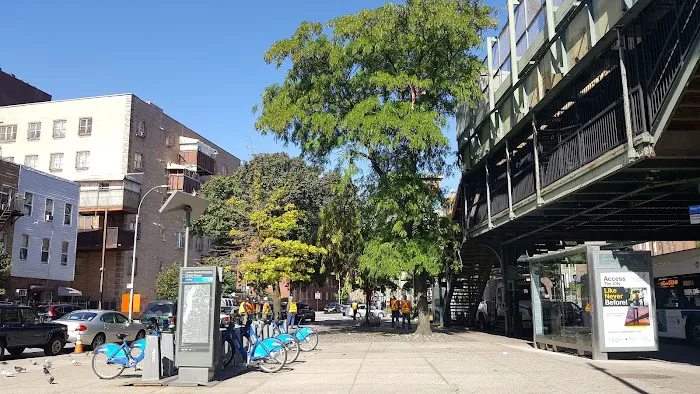
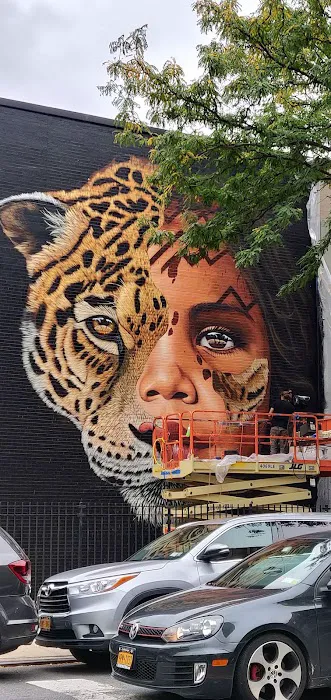
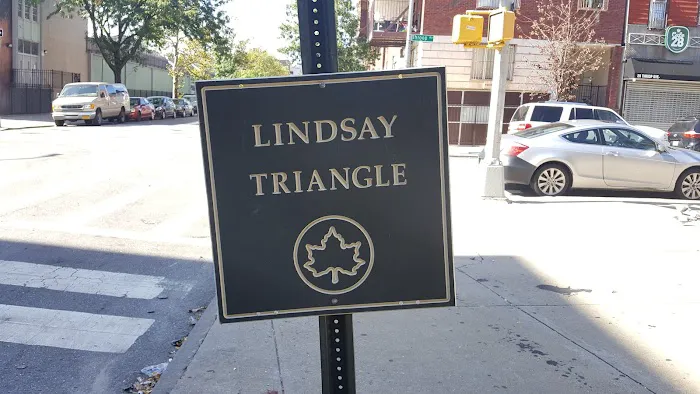
Lindsay Triangle Location
Lindsay Triangle
Lorimer St &, Throop Ave, Brooklyn, NY 11206, USA
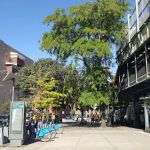 Lindsay Triangle
Lindsay TriangleLorimer St &
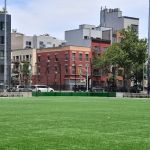 Sternberg Park
Sternberg ParkLorimer Street &
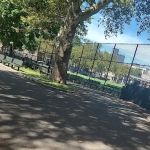 Sternberg Park Dog Run
Sternberg Park Dog Run73 Montrose Ave
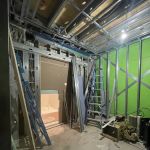 Harmony Triangle
Harmony TriangleMiddleton Street
 Hotel 42
Hotel 42426 S 5th St
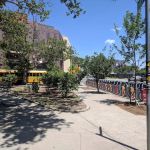 Union & Marcy Triangle
Union & Marcy TriangleUnion Ave &
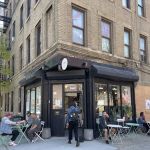 Southside Community Garden
Southside Community GardenHewes St
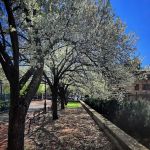 Ten Eyck Plaza
Ten Eyck Plaza34 Ten Eyck St
 Lithuania Square
Lithuania SquareHewes St &
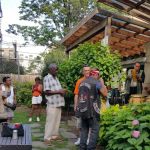 Scholes Street Children's Garden
Scholes Street Children's Garden134-136 Scholes St
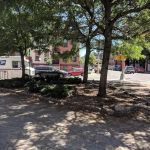 Division & Hooper Triangle
Division & Hooper TriangleDivision Ave &
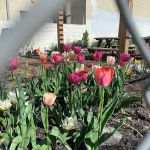 Hooper Grove
Hooper Grove375 S 5th St
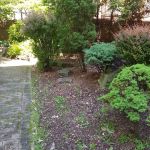 Ten Eyck Garden
Ten Eyck Garden17 Ten Eyck St
Lindsay Triangle Reviews
Not much to see but you can pick up a Citi-Bike or hop on over to the J & M Train Station if you'd like.
Apr 23, 2017 · Peter PierreFun place
Mar 31, 2018 · Gracjan CieslikGood...
Nov 25, 2015 · S ReyesNice
May 13, 2016 · Hershy LeiblerGreat park 😍😍😍😍😍😍😍😍😍💖💖💖💖💖💖💖💖💖👍👍👍👍👍👍👍👍👍😊
Oct 18, 2019 · nicole raverta
More Scenic Spot
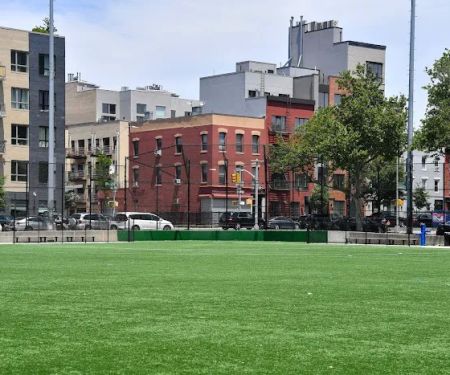 Sternberg Park4.0 (906 reviews)
Sternberg Park4.0 (906 reviews)Lorimer Street &, Boerum St, Brooklyn, NY 11206, USA
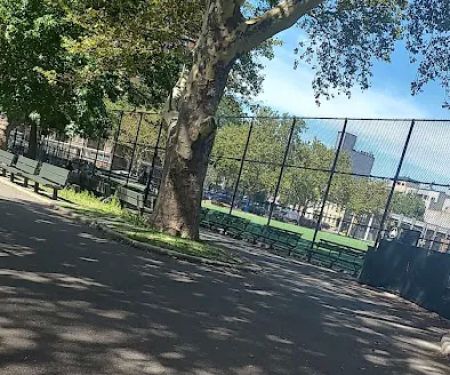 Sternberg Park Dog Run2.0 (22 reviews)
Sternberg Park Dog Run2.0 (22 reviews)73 Montrose Ave, Brooklyn, NY 11206, USA
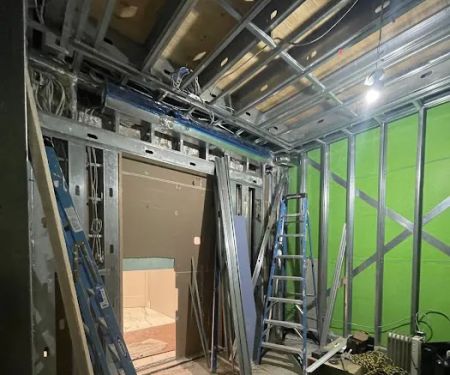 Harmony Triangle3.0 (27 reviews)
Harmony Triangle3.0 (27 reviews)Middleton Street, Union Ave, &, Harrison Ave, Brooklyn, NY 11206, USA
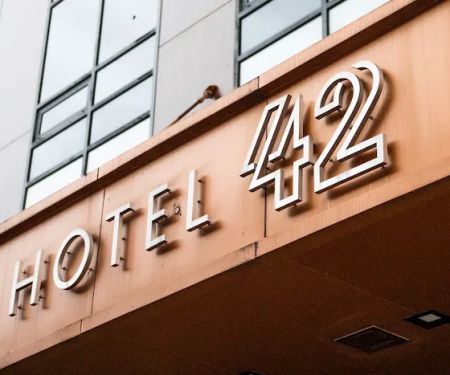 Hotel 423.0 (203 reviews)
Hotel 423.0 (203 reviews)426 S 5th St, Brooklyn, NY 11211, USA
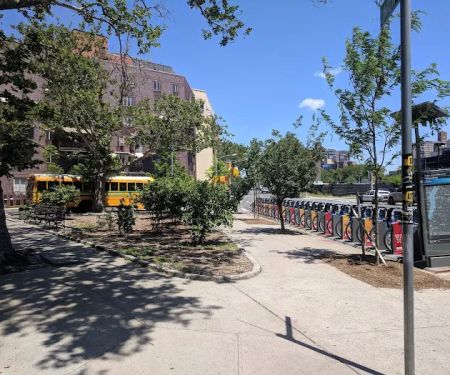 Union & Marcy Triangle4.0 (1 reviews)
Union & Marcy Triangle4.0 (1 reviews)Union Ave &, Wallabout St, Brooklyn, NY 11206, USA
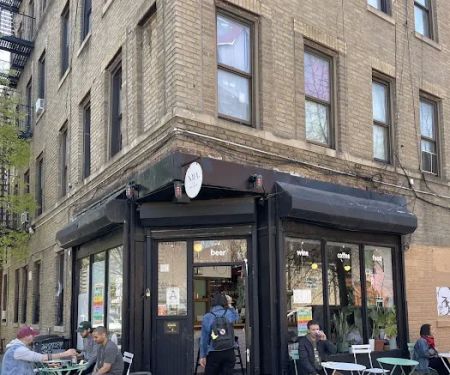 Southside Community Garden0.0 (0 reviews)
Southside Community Garden0.0 (0 reviews)Hewes St, Brooklyn, NY 11211, USA
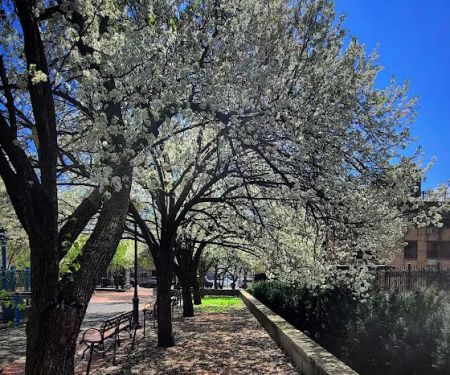 Ten Eyck Plaza4.0 (41 reviews)
Ten Eyck Plaza4.0 (41 reviews)34 Ten Eyck St, Brooklyn, NY 11206, USA
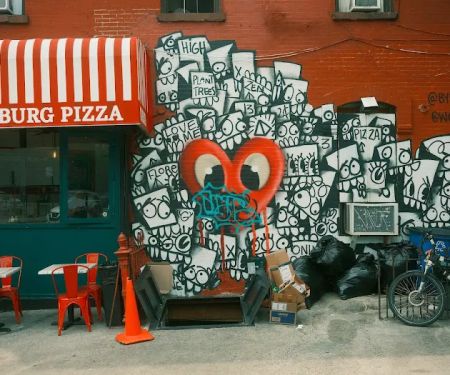 Lithuania Square4.0 (21 reviews)
Lithuania Square4.0 (21 reviews)Hewes St &, Union Ave, Brooklyn, NY 11211, USA
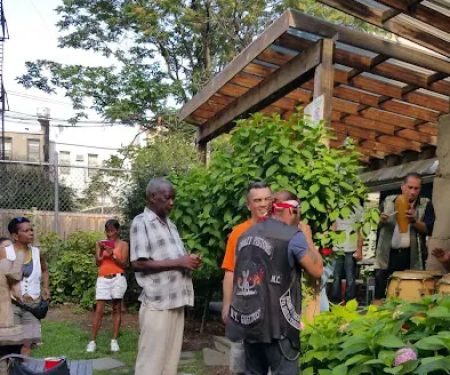 Scholes Street Children's Garden4.0 (18 reviews)
Scholes Street Children's Garden4.0 (18 reviews)134-136 Scholes St, Brooklyn, NY 11206, USA
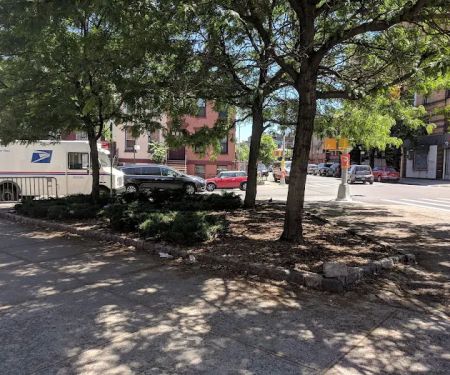 Division & Hooper Triangle3.0 (4 reviews)
Division & Hooper Triangle3.0 (4 reviews)Division Ave &, Hooper St, Brooklyn, NY 11211, USA
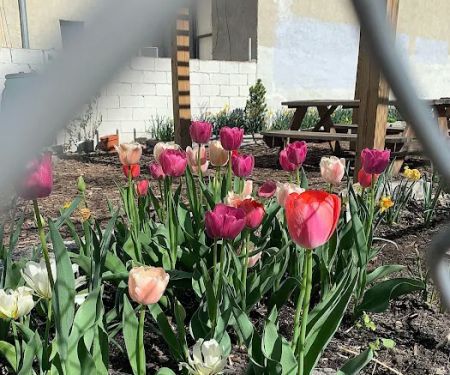 Hooper Grove5.0 (4 reviews)
Hooper Grove5.0 (4 reviews)375 S 5th St, Brooklyn, NY 11211, USA
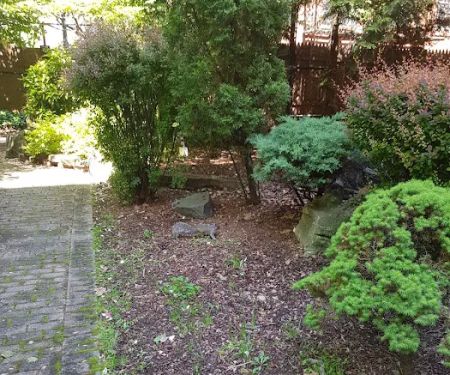 Ten Eyck Garden0.0 (0 reviews)
Ten Eyck Garden0.0 (0 reviews)17 Ten Eyck St, Brooklyn, NY 11206, USA
Categories
Popular Camping Sites
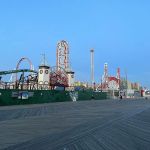 Coney Island Boardwalk Garden4.0 (75 reviews)
Coney Island Boardwalk Garden4.0 (75 reviews) The William Hotel Midtown, Sonder4.0 (555 reviews)
The William Hotel Midtown, Sonder4.0 (555 reviews)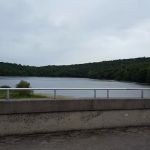 Shepard Lake Recreation Area0.0 (0 reviews)
Shepard Lake Recreation Area0.0 (0 reviews)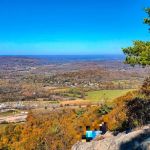 Stairway To Heaven4.0 (185 reviews)
Stairway To Heaven4.0 (185 reviews)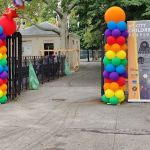 Howard Bennett Playground4.0 (152 reviews)
Howard Bennett Playground4.0 (152 reviews) Isle of Meadows4.0 (10 reviews)
Isle of Meadows4.0 (10 reviews)Trending Camping Blog Posts
 Top Group Travel Destinations in Europe: Best Places for Group Vacations
Top Group Travel Destinations in Europe: Best Places for Group Vacations How to Get Involved in Travel Clans for Social Travel: Explore Group Travel Opportunities
How to Get Involved in Travel Clans for Social Travel: Explore Group Travel Opportunities Best Travel Clans for Sustainable Travel
Best Travel Clans for Sustainable Travel Best Group Vacation Destinations for Friends: Ultimate Travel Ideas
Best Group Vacation Destinations for Friends: Ultimate Travel Ideas Travel Clans for Solo Travelers Looking for Company: Join Unique Travel Communities
Travel Clans for Solo Travelers Looking for Company: Join Unique Travel Communities Best Travel Clans for Women Traveling Together
Best Travel Clans for Women Traveling Together 
